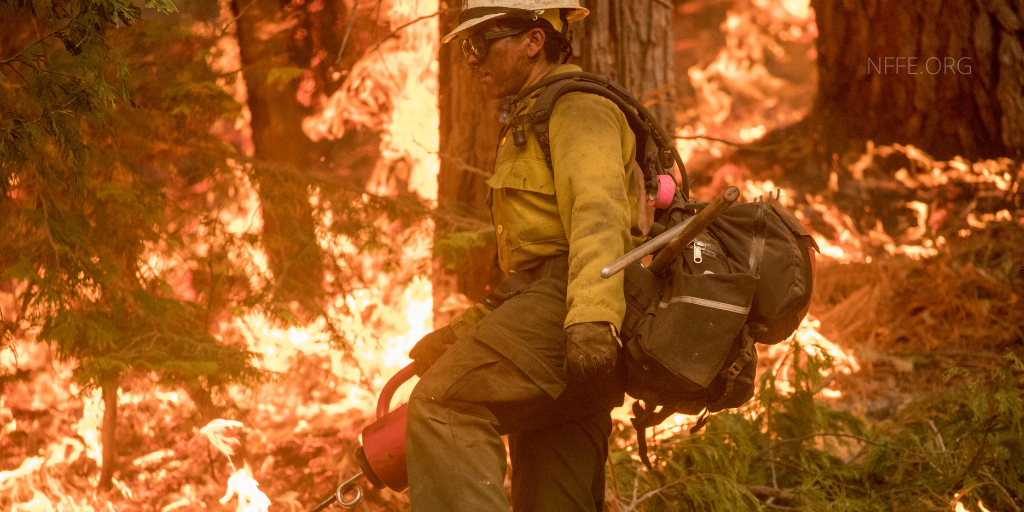
October 27, 2021
Washington, D.C. – Today, the National Federation of Federal Employees (NFFE) submitted testimony to the House Subcommittee on National Parks, Forests, and Public Lands for its hearing on wildland firefighting workforce reforms. The hearing was scheduled to discuss the Tim Hart Wildland Firefighter Classification and Pay Parity Act and the Wildland Firefighter Fair Pay Act, both of which aim to improve the lives of federal wildland firefighters through better pay, benefits, and support programs.
“The time is now to address the systemic problems we have in fighting wildfire. This is not one of those issues that can be studied and contemplated for years on end. We need action, and we need action this year,” said NFFE National President Randy Erwin in a statement to the committee. “As the largest representative of federal wildland firefighters, we know that with each intensifying fire season, firefighters and their families have been forced to endure greater hardships. At the very root of this tribulation is an outdated and under-resourced federal wildland firefighter program.”
“For too long, federal wildland firefighters have endured low pay,” stated Erwin. “The impact of below market wages is reflected by the continuing loss of federally trained and certified personnel to state and local fire services. In addition to the loss of seasoned personnel to lead annual fire suppression efforts, the loss of federally trained assets is damaging to the success and fiscal efficacy of federal firefighting programs.”
President Erwin continued, “Since NFFE began representing wildland firefighters more than 80 years ago—during that time building federal wildland fire services from a loosely knit effort of wildfire response into a professional force of highly trained specialists—the mental and physical toll on firefighters has increased significantly because of the growing demands of the job.”
“Over time, firefighters see a lot of troubling things, and sadly, these things impact their mental health. Mental health is exacerbated for wildland firefighters by long detachments from their families and their “regular lives.” It is not surprising that many wildland firefighters struggle with depression and addiction. There is also an unacceptably high rate of suicide among wildland firefighters. It is time for a significant investment in mental health and wellness for wildland firefighters, including training and support networks to ensure that everyone has a lifeline to be heard, understood, and embraced.”
“NFFE looks forward to working with the Subcommittee on these and additional matters from which to build modern, fully funded, fully staffed federal wildland firefighting services,” President Erwin concluded.
